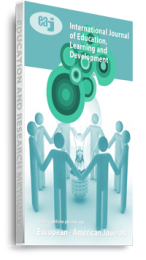This ethnographic case study explored the challenges besetting academic development (AD) at a satellite campus of a leading university in Namibia. It sought to establish and proffer suggestions on how AD should evolve at the institution, being mindful of any enabling or constraining cultural, structural and agential factors. Three research questions guided the study. The study sample was purposefully selected and comprised the acting head of campus, two Heads of Department, three academic coordinators, the Quality Assurance Coordinator, the student support officer and the Student Counsellor. The findings of the study revealed that this relatively new professional field of academic development has not received the best of receptions by a significantly large portion of academic staff members, including some key agents. The study found that there was a general apathy and reluctance to afford the AD practitioners the space and ‘license’ to exercise their practice. Based on the forgoing findings, the study recommended that the AD practitioners in the constrained contexts be accorded recognition and support by the key agents in the institution and that innovative interventions be put in place to promote AD processes.
Keywords: Agency, Culture, Structure, academic development, morphogenetic

